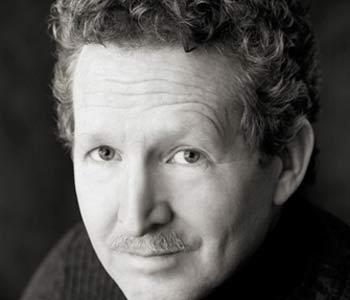Ousmane Oumar Kane
Beyond Timbuktu: An Intellectual History of Muslim West Africa
Harvard University Press
296 pages, 6-1/8 x 9-1/4 inches
ISBN 9780674050822
Beyond Timbuktu is about the literary cultures of West Africa. The old West African city of Timbuktu is famous as a great center of Muslim learning from Islam’s Golden Age. It is renowned for its madrassas and archives of rare Arabic manuscripts. Yet Timbuktu is not unique. It was one among many scholarly centers to exist in precolonial West Africa. Beyond Timbuktu charts the rise of Muslim learning in West Africa from the beginning of Islam to the present day, examining the shifting contexts that have influenced the production and dissemination of Islamic knowledge—and shaped the sometime conflicting interpretations of Muslim intellectuals—over the course of centuries.
Highlighting the significant breadth and versatility of the Muslim intellectual tradition in sub-Saharan Africa, Beyond Timbuktu corrects lingering misconceptions in both the West and the Middle East that Sub-Saharan Africa’s Muslim heritage represents a minor thread in Islam’s larger tapestry. West African Muslims have never been isolated. To the contrary, their connection with Muslims worldwide is robust and longstanding. The Sahara was not an insurmountable barrier but a bridge that allowed the Arabo-Berbers of the North to sustain relations with West African Muslims through trade, diplomacy, and intellectual and spiritual exchange.
The West African tradition of Islamic learning has grown in tandem with the spread of Arabic literacy, making Arabic the most widely spoken language in Africa today. In the postcolonial period, dramatic transformations in West African education, together with the rise of media technologies and the ever-evolving public roles of African Muslim intellectuals, continue to spread knowledge of Islam throughout the continent.
Unfortunately, the Western public and academy have bee largely ignorant of this vibrant intellectual and religious tradition. Beyond Timbuktu provides an accessible account of the development of this tradition from the earliest stages through its complex interactions with colonialism and present fascinating engagements with modernity. I hope Western readers will enjoy discovering a rich scholarly tradition that is likely to be new to them, and that those who are already familiar with the tradition will appreciate the historical perspective and analysis of the various dynamics that have shaped West Africa’s impressive Islamic tradition.
Among the contemporary debates to which this book seeks to contribute, African historiography and cosmopolitanism are paramount. In his Philosophy of History lectures, German philosopher Georg Wilhelm Friederich Hegel claimed that Africa “is no historical part of the World,” and described it as “Unhistorical” and an “Undeveloped Spirit.” He also separated North Africa because it was rather related to Asia and Europe. Unfortunately, much of Western scholarship in the past and present discourse echoes or has been informed by Hegel’s prejudiced perspective.
A huge body of literature on African history has refuted the Hegelian claim, and this book demonstrates how Africa was indeed a historical part of the world proven by its integration into world political economy for over a millennium, the great empires and civilizations that flourished in Africa before foreign invasions, and the higher rates of literacy and scholarship in West Africa at some periods than could be found in contemporary Europe. Yet most of postcolonial African historiography sought to write African history using either in colonial languages, oral tradition, and archeology. This book highlights another category of sources: writings in Arabic languages or in African languages written in the Arabic script. The history of Arabic writing in Africa spans a period of 800 years and West African Muslim scholars cite in their works authors from a variety of regions, including Turkey, India, North and West Africa, Persia, and Al-Andalus, which is evidence that they have for centuries participated in a global network of intellectual exchange. In addition, while Europeans since Hegel have long viewed the Sahara as a formidable barrier that makes North Africa more akin to the Middle East or Mediterranean Europe, the political, economic, and scholastic networks documented in this book are often centered around the Sahara and highlight how those living around the desert have for centuries used it as a bridge to form these large regional networks.
This leads to the other important debate to which this book seeks to contribute: cosmopolitanism. Black Africa has been represented in academia as well as in popular representations as a continent of warring tribes. One of the main challenges of nation building, so the story goes, was to create a sense of belonging among different tribes separated by colonial and post-colonial boundaries. This has been so well documented that it has become, if not the single story, at least the dominant narrative. This book argues that large sections of West African peoples have, in the past and the present, proven their ability to transcend parochial identities and differences in a common cause and have indeed claimed their independence of thought and common destiny. More than anything else, this is embodied in a long literary tradition that has been obscured by European colonial hegemonic discourses of the past century, which tended to represent black Africa essentially as a continent of orality and obscured its literary tradition.
Finally, this book is a bit autobiographical for me as my family and I are part of this proud tradition of Islamic and Arabic scholarship. I draw heavily from my personal experience growing up in the traditional Islamic educational system, my involvement with Arabophone education, and the schools run by my family that embrace both Islamic and modern, secular educational models. My own professional career has been the product of both Western, Europhone education and West African, Arabophone education, so it has been a pleasure documenting and presenting the latter side so the wider world can learn what it has to offer just as I have from my youth.
I hope that a just browsing reader would read all the epigraphs of the prologue, the nine chapters of the books, and the epilogue because they either illustrate a main argument of a chapter or a major misconception about Africa that I seek to correct. My main claim is that Africa has a long intellectual tradition in Arabic or African languages in the Arabic script. But racial stereotypes and colonial hegemonic discourses obscured that tradition.
For example in the epigraph of the prologue, I cite African former Ghanaian Head of State Kwame Nkrumah who, in his installation address as the Chancellor of the University of Ghana in 1961 lamented that the destruction of West African centers of learning by foreign invaders. Indeed in 1591, a Moroccan expedition of thousands of troops heavily armed attacked the Songhay Empire of which Timbuktu was a part precipitating its collapse. They confiscated thousands of books and manuscripts. Three centuries afterward, the French troops led by Commander Archinard conquered the Islamic State founded by Umar Tall in 1889. They then confiscated thousands of manuscripts and moved them to the French Bibliothèque nationale where they are still preserved. In 2013, during the French counteroffensive to liberate Northern Mali occupied by Islamists, the latter burnt or stole thousands of manuscripts.
I also hope that browsing readers would read pages 1 to 6 of the book, which are largely autobiographical. I believe that my own personal and family history, which prompted me to me write this book, reflects to a large extent the transformations that the Islamic scholarly tradition underwent in Africa since the colonial encounter.
In 1964, Nigerien intellectual Abdou Moumouni, after whom the first university of independent Niger was named, published a state-of-the-art study of education in Africa, identifying its strengths and weaknesses. He argued forcefully that the reform of the educational system of Africa was a priority. Five decades after the publication of Moumouni’s work, knowledge production is still fragmented, and the current educational system is still not fully capable of integrating the different intellectual traditions. The problem with this knowledge divide is of course not specific to West Africa. The issue of knowledge divides in the world was the subject of the first World Social Science Report (ISSC-UNESCO 2010). Of the problems posing an obstacle to the accumulation, transmission, and use of knowledge in different societies, the report cites inequalities and asymmetries as the paramount factors. These are no doubt questions confronting West Africa in particular. The divide between intellectuals educated in European languages and in intellectuals in African languages and in particular Arabophones—needs to be bridged in order to make the intellectual legacy of the African continent legible and to build a solid foundation for education in the new millennium.
The implications of this book are potentially vast. First and foremost, my hope is that many people in Africa and beyond will come to be aware and proud of the fact that Africa is home to the world’s oldest university and a truly impressive intellectual tradition that is underappreciated. I hope that by showcasing the history, rigor, and vitality of this tradition, that others will come to appreciate everything it has offered the world in the past and still has to offer. Additionally, I hope that this work will help to bridge the considerable gap left by a skewed Eurocentric perspective on Africa and African intellectual history and allow a greater collaboration between the vibrant Islamic and Western intellectual traditions that have taken root in Africa and that have benefitted me personally.




We don't put paywalls. We don't distract you with ads. We don't sell your data.
Please help to keep this running!